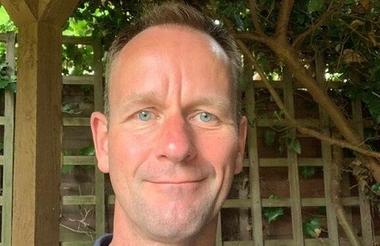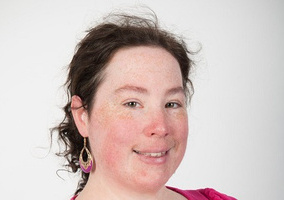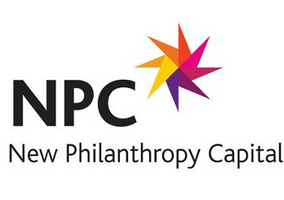After I received my Parkinson’s diagnosis at the age of 45, I was in complete shock. I sat in my car on the phone to the Parkinson’s UK helpline for two hours and the adviser I spoke to calmed me down. From that moment on, I was bonded to the charity.
Looking back, seven years later, I realised I’ve come full circle. I’m now leading Parkinson’s UK’s marketing and communications department and I’m passionate about working for a charity that aims to find a cure and improve life for people living with Parkinson’s. People like me.
Before I applied to join Parkinson’s UK, I thought about it deeply. I considered what it would be like to be surrounded by Parkinson’s both at home and at work. Work can be an escape from health and other challenges we face in life, and I, like many others, turn a blind eye to the future with Parkinson's.
I tend to avoid thinking about what the future may hold. At work, there's no escaping seeing other people, often more affected than I am currently by the condition. But I see many inspirations – people doing well, living fun and adventurous lives, and that has given me so much hope, inspiration, and ideas.
First-hand experience
I’ve now been at Parkinson’s UK for approaching a year, and I believe that working for a charity that I have first-hand experience with allows me to provide a fresh insight into the work that we do. And I’d encourage other charities to employ more people with lived experiences of their causes for many reasons.
To start with, I believe I can offer a different perspective to the work that we do. I understand, first hand, the barriers that we as a charity need to overcome and I can often refer to my own experience, or those of people I know, to make our communications more relevant. I can wear both hats in conversations, I can be a working professional and a person with Parkinson’s.
Living with Parkinson’s also helps me build meaningful connections with our community. It’s central to Parkinson’s UK’s strategy that our work is shaped by people living with the condition and those close to them. We aim to work closely with our community in all areas of our work. From involving people with Parkinson’s sharing their experiences with our staff, to helping to shape and how we communicate in an appropriate tone and through the right channels.
Guided by the Parkinson’s community, we’ve shaped a strategy that’s in place until 2026. We know that the last few years have made life more difficult for people with Parkinson’s, families, friends and carers. We’ve heard that getting good health and care services has got harder. Symptoms may have worsened. More than ever, people want rapid improvements to services, and direct access to support, information and treatments that can help them live better with Parkinson’s, right now.
Our strategy focuses on four areas that we know are important for people living with the condition:
- Pushing for excellent health and care.
- Building your community of support.
- Getting you new treatments, faster.
- Becoming fit for the future.
We are all focused on delivering these four key pillars and improving the lives of everyone affected by the condition, and I’m so proud to be playing my part.
A different insight
By having more people with lived experience in senior roles, charities can:
- Have a voice of the condition at the table and ensure someone with lived experience is inputting their perspective.
- Constantly be reminded that all individuals with lived experiences are different.
- Your community will take confidence in your decision-making as lived experience is represented throughout your organisation.
- By having more people with lived experience, they can also encourage the recruitment of more people into your organisation with the condition you are championing, thereby broadening your understanding of the true life experience.
If you are looking at hiring people with lived experiences into senior roles, I’d encourage you to remember that employers need to be supportive of those with any health condition, not just the cause you are championing. I have joined our disability network to represent people with Parkinson’s in our organisation, but also all those with other health conditions so I can be fully informed and offer them the best support possible.
Not only do I think that leading with lived experience offers a different insight into the work that me and my colleagues do, but I’ve also gained a great deal from working for the charity. I’ve really enjoyed working somewhere where I feel understood.
I find that one of the hardest things is meeting new people and deciding whether to explain to them that I have Parkinson’s, and what that means for me, or whether to let them make their own conclusions from what they see. Parkinson’s fluctuates a lot during the course of a day, everyone at Parkinson’s UK has an awareness of how the condition can affect people, and also that every case of Parkinson's is unique to the individual.
Related Articles











